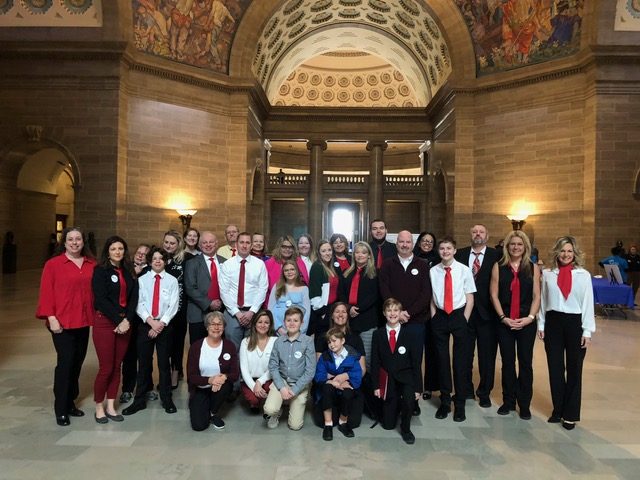
Now is a good time to communicate with the candidates in your district running for state legislator or state senator. They are willing to listen now, since they want your vote. Good advocates are patient and persistent. You are the expert – your credibility is key. Build relationships with your legislators. Here is how:
MO All Copays Count Coalition
The Missouri All Copays Count Coalition is composed of members serving the interests of beneficiaries with chronic and serious health conditions that rely on copay assistance in various forms to make medically necessary drug treatments affordable. Ensure #AllCopaysCount by asking your MO Senator to support all copays count legislation. MO House Bill 442 passed. Contact info@
For more information on the All Copays Count Coalition click here.
Find Your Legislators:
Click for Missouri Legislator Lookup
Click for Kansas Legislator Lookup
Find your elected official in any state!
Communicating with Your Legislator
Do:
- Your homework – know your district, the issues and your legislators.
- Develop a relationship – become an informed and trusted resource.
- Treat your legislators with the same dignity and respect you would expect for yourself.
- Work with the legislative staff.
- Develop strong grassroots support. The more people, the greater the impact.
Don’t:
- Don’t be late.
- Don’t be rude, offensive or argumentative.
- Don’t give ultimatums. If a legislator does not support your issue, thank them, ask if there are any questions, if not, move on.
- Don’t expect to change a legislator’s mind immediately; remember, patience and persistence.
- Don’t give incorrect information; admit you do not know and offer to find out.
Phone:
Phone calls are most effective when time is of the essence; i.e., a bill is up for a vote in committee. Phone calls can also be used immediately following a favorable vote to extend your appreciation.
- Ask to speak with the legislator; if this is not possible, spend time with staff.
- Clearly identify yourself; be sure to say you are a constituent when calling your representative.
- If you have met before, a reminder may be necessary. This can also help to lead into the reason for the call.
- Be specific about the reason for the call. Identify a specific bill if possible. Limit your call to one or two issues at a time.
- Briefly state your position and ask for your legislator’s vote.
- Ask your legislator’s position on the issue or bill.
- Offer to provide more information to help your legislator to make an informed decision.
- Offer to follow up if your legislator is unsure of his/her position at the time of the call.
Letter/E-mail:
Bleeding disorders are complicated. Putting your thoughts in writing will allow your legislator to learn more about access issues before responding.
- Include your mailing address and phone number on all correspondence. The legislator can contact you with questions or for further information.
- Avoid using postcards.
- Keep letters to one issue: short and to the point. Refer to the issue specifically or a bill number, if possible.
- Clearly state what you want the legislator to do: support a bill in committee; oppose a bill on the floor; offer an amendment.
- Offer specific information on why the issue is important.
- Timing is critical. One or two days before a vote is taken is generally best.
- Ask that the legislator state his/her position in the reply.
- Don’t forget to follow up calls, letters, and visits with a thank you note.
Visit:
Visits are important on key issues when your legislators’ votes really count. Visits are also important when educating legislators on bleeding disorders. Visits also serve to establish you as a source of information.
- Call your legislators’ offices or send an email requesting a meeting. Let them know what you wish to speak to them about, and offer two or three alternative times you are available.
- Always address your legislator as “Representative” or “Senator.”
- Be prompt, patient and flexible. It is not uncommon for a legislator to be late or to have an interruption during a meeting.
- Be prepared. Do your homework and practice what you want to say.
- Be responsive. Be prepared to answer questions.
- Have something in writing to leave behind, preferably a one-page (front and back) fact sheet with information on your issue and position.
- Always thank legislators for their time and express interest in keeping in touch, even when they disagree with your position.
Additional Resources:
For information on National Advocacy Issues with the National Hemophilia Foundation click here and with the Hemophilia Federation of America click here.
Centers for Medicare and Medicaid Services
Employee Benefits Security Administration
National Association of Insurance Commissioners (NAIC): NAIC is a standard setting and regulatory support organization. Their website includes a map that will allow you to determine the insurance commissioner in your state.
Patient Advocate Foundation (PAF): PAF is dedicated to improving healthcare access. Their website offers education, assistance, and resources related to healthcare coverage.
United States Department of Labor: Includes information on ERISA and COBRA plans.
